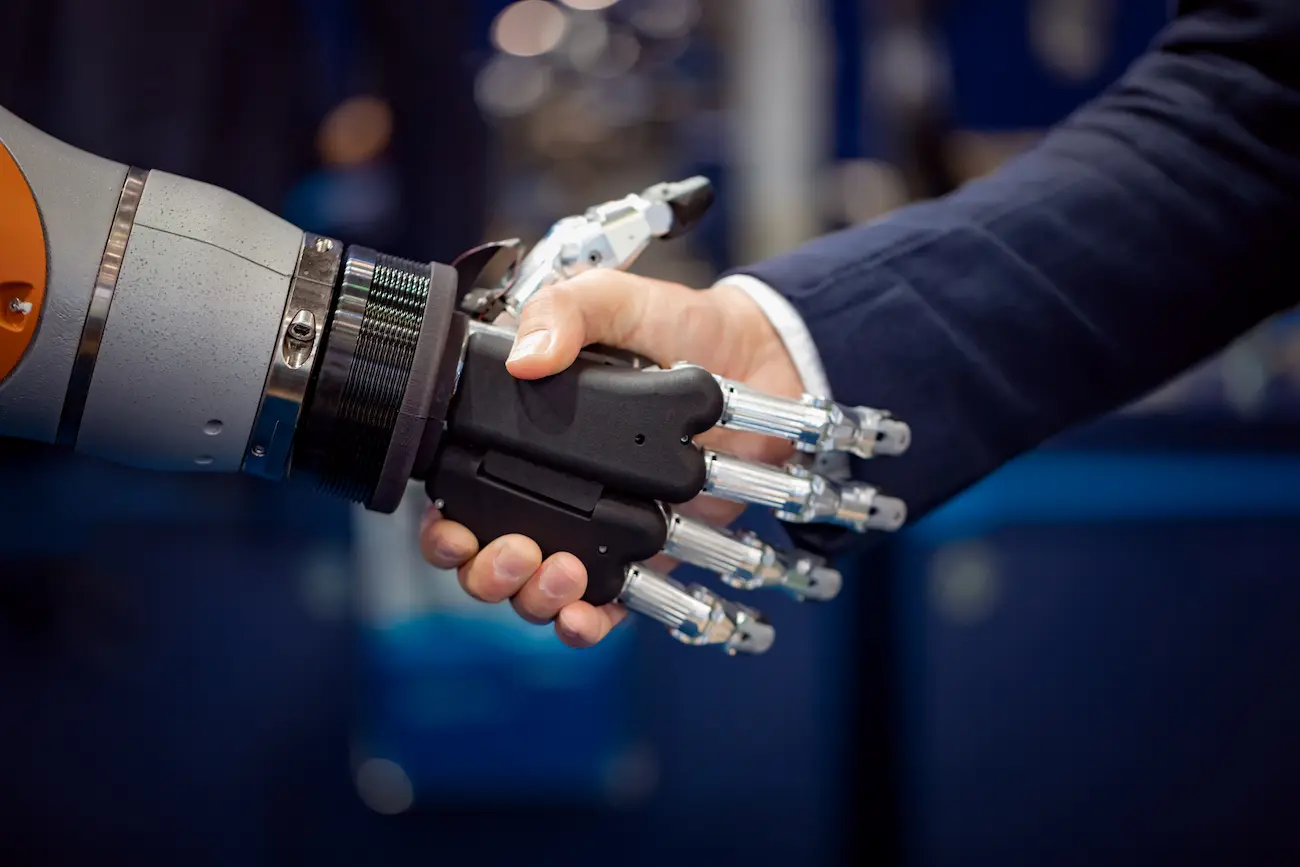In today’s world, with the rapid evolution of technology, the sales sector is undergoing a significant transformation. Businesses are turning to innovative technologies such as artificial intelligence (AI) and machine learning (ML) to optimize sales processes, maintain competitive advantages, and enhance customer satisfaction. In this article, we will focus on the applications of AI and ML in sales applications and the benefits they provide to businesses.
What is Artificial Intelligence (AI)?
Artificial Intelligence (AI), also known as AI, is a branch of science developed to simulate human-like intelligence and learning abilities in computer systems. AI is used to enhance machines’ capabilities in solving complex problems, learning, analyzing data, and reaching logical conclusions.
AI is a multidisciplinary field encompassing various subfields. Here are some fundamental areas of artificial intelligence:
Machine Learning (ML):
Machine learning enables algorithms to analyze data, recognize patterns, and make predictions based on these patterns. The learning process occurs through trial and error, where machines improve their performance based on experiences.
Deep Learning:
Deep learning enhances machines’ ability to perform complex tasks using multi-layered artificial neural networks. It is particularly effective in fields like image and speech recognition.
Natural Language Processing (NLP):
NLP enables computers to understand human language and interact with humans in natural language. It is used in applications such as text mining, text understanding, language translation, and voice assistants.
Computer Vision:
Computer vision allows computers to perceive, analyze, and understand images. It is widely applied in automation, medical imaging, and security fields.
Robotics and Automation:
AI assists robots and automation systems in performing complex tasks. It is used across industries such as industrial production, logistics, and healthcare.
Artificial intelligence uses advanced algorithms and big data to solve complex problems, create autonomous systems, and interact with humans. While AI offers significant benefits in many areas, addressing ethical and security concerns is crucial. Developing and using AI systems ethically and securely is of paramount importance.
What is Machine Learning?
Machine Learning (ML), a branch of artificial intelligence (AI), enhances computer systems’ abilities to analyze data, learn, and discover patterns and relationships for making future decisions. ML enables programs to learn from data-based experiences rather than following specific instructions. Essentially, machine learning allows machines to perform specific tasks through data-driven learning processes.
Machine learning typically involves the following key components:
Data Collection and Preparation
The initial step involves gathering, cleaning, and preparing the data required to solve the problem. This includes making the data suitable for analysis.
Model Selection and Training
Machine learning algorithms or models are selected and trained on training data. The model identifies patterns in the dataset and uses these patterns for future predictions.
Evaluation
The performance of the trained model is evaluated using test data. Various metrics are used to measure how well the model performs. Efforts are made to improve the model’s performance.
Prediction and Decision-Making
The trained model is applied to new and unknown data to make predictions or decisions. This is particularly useful in tasks such as classification, regression, clustering, and forecasting.
Machine learning finds applications in various fields, including:
Image and Speech Recognition
Used in applications such as object recognition, facial recognition, and speech recognition.
Natural Language Processing (NLP)
Used in tasks like text mining, language translation, text classification, and speech synthesis.
Healthcare
Applied in disease diagnosis, drug development, and patient care.
Financial Forecasting
Used for predicting stocks, forex trends, and market trends.
Automation and Robotics
Used in industrial robots, autonomous vehicles, and automation systems.
Recommendation Systems
Utilized by online shopping sites and media platforms.
Machine learning is a powerful tool for working with large volumes of data, solving complex problems, and creating more efficient business processes. Therefore, it has a significant impact on many industries and continues to evolve rapidly.
What are the Trading Technologies of the Future?
Artificial Intelligence (AI) and Machine Learning (ML)
AI and ML are used to optimize commerce in areas such as customer segmentation, personalization, inventory management, sales forecasting, and customer support.
Blockchain Technology
Blockchain is used for secure transactions, traceability, and supply chain management.
Internet of Things (IoT)
IoT devices are used for inventory tracking, customer behavior analysis, and enhancing consumer experiences.
Virtual and Augmented Reality (VR/AR)
VR and AR are used to enhance store experiences, display products, and provide entertaining shopping experiences.
Autonomous and Electric Vehicles
Autonomous vehicles are used for delivery and logistics, while electric vehicles play a role in sustainability and reducing environmental impact.
Digital Payments and Cryptocurrencies
Digital wallets and cryptocurrencies are gaining acceptance in commerce beyond traditional payment methods.
Personal Assistants and Chatbots
Chatbots and virtual assistants are used to enhance customer service and resolve issues quickly.
Big Data Analytics
Big data is used for customer analysis, demand forecasting, and data-driven decision-making.
Online and Social Commerce
Social media platforms and digital marketplaces are used to sell and promote products.
3D Printing
3D printing is used to create product prototypes, optimize supply chains, and produce customized products.
Impact of Future Commerce Technologies on Sales Teams
Customer Segmentation and Personalization
AI and ML enable businesses to better understand customers through big data analysis, allowing for improved targeting and personalized marketing campaigns. These technologies can analyze customer preferences, shopping habits, and behaviors to offer personalized recommendations. For example, an e-commerce platform can suggest products based on a user’s past purchases.
AI and ML also provide more precise customer segmentation by considering demographic data, geographic location, and online behaviors. This helps businesses gain deeper customer insights and facilitates offering personalized offers.
Inventory Management and Demand Forecasting
In sales applications, accurate inventory management is crucial. AI and ML can predict future demand by analyzing factors such as past sales data, seasonality, weather conditions, and holiday periods. This enables businesses to optimize their inventories and reduce inventory costs. Moreover, demand forecasts help businesses better meet customer demand and adopt more competitive pricing strategies.
Sales Forecasting and Pricing
AI and ML can conduct comprehensive analyses to predict future sales and make strategic decisions. They can also be used to develop dynamic pricing strategies. For instance, hotel reservation platforms can adjust prices automatically based on customer demand and room occupancy rates.
Sales forecasting provides valuable data for production planning, inventory management, and marketing strategies. Businesses can respond better to customer demands and adopt more competitive pricing strategies.
Customer Support and Troubleshooting
AI plays a significant role in improving customer support processes. Chatbots and virtual assistants provide quick responses to customer queries and resolve basic issues. Additionally, machine learning can analyze customer feedback to identify issues with products or services.
Customer support processes are critical for customer satisfaction. AI-based support systems can enhance customer satisfaction by offering 24/7 service capabilities and enabling businesses to resolve issues quickly.
Security and Fraud Prevention
AI and ML can be used to protect sales applications against fraud and security threats. These technologies can identify abnormal activities and detect fraud attempts. Particularly for e-commerce platforms, customer security is a major concern, and such solutions are crucial.
AI and ML can automatically monitor malicious activities, detect fraud attempts, and protect businesses. This enhances both business and customer security.
Conclusion
In sales applications, AI and ML offer significant benefits to businesses in terms of efficiency, competitive advantage, and customer satisfaction. These technologies assist in big data analysis, automation, and personalization. In the future, the sales sector will continue to see more AI and ML applications, further optimizing sales processes.








